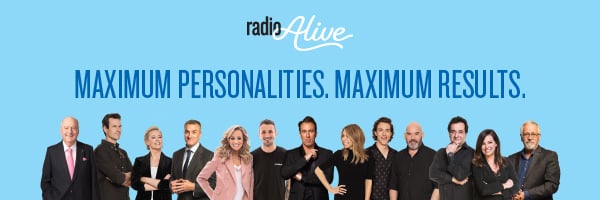Comment form Peter Saxon and Graham Mott
We live in the Information Age – the Digital Age, as some technocrats prefer to call it. The first is content, the second represents the platform that delivers it – mind-blowingly faster and with greater reach than ever before.
Others define our era as the Age of Data. The three, go hand in hand. But has it gotten out of hand? Is mainstream media (MSM) and the law ahead of the curve or way behind it?
“Data is not information, information is not knowledge, knowledge is not understanding, understanding is not wisdom.” – Clifford Stoll.
We have access to plenty of data. We’re spoilt for choice in terms of information sources as well as countless disinformation sources. No wonder we feel more confused and less knowledgeable than ever, completely dumbfounded as far as understanding goes, and bereft of wisdom.
For every “fact,” or commonly held view, there’s an alternative fact or conspiracy theory to debunk it.
When the printed word was gospel, arguments about “facts,” whether scientific or historical, would be settled by consulting a universally accepted, credible source such as the Encyclopaedia Britannica. Today we trade links to websites of dubious provenance that we’ve cherrypicked to support whatever “facts” we’ve chosen to believe.
With unprecedented choice in media we can choose to watch television shows, read newspapers and listen to radio stations that reinforce our own world view. Challenge our “beliefs” with actual facts and we circle the wagons and block our ears. Heaven forbid we be forced to confront our prejudices.
What news is real and what’s fake? Who has what information about us and how are they using it?
Every “Age” from the Stone Age to the Industrial Age has had its benefits and its drawbacks. The Space Age that preceded this one, certainly had its own troubles but there seemed to be a shared optimism that the children of that era, mostly baby boomers, would inherit a world better than their parents.’
Sadly, that optimism for generation Z (born circa 1995) has all but evaporated. The Information Age, which has produced wonders and miracles at break-neck speed, has also torn giant holes in the fabric of western society. As a result, we have less confidence in public institutions, university trained experts, authority in general, and in particular, politicians and MSM.
We are in crisis about who to believe. What news is real and what’s fake? Who has what information about us and how are they using it? Who are our real enemy? Is it China, Russia, Iran or is it our fellow citizens on the “left” or the “right” of us? Or our own government and the so called “deep state?”
What is free speech versus hate speech? What can, can’t or shoudn’t be discussed and by whom? What part of all this is just a matter of changing community standards like long hair and short skirts that will eventually sort themselves out and what part should be regulated by law?
Right now, all of these questions are hot topics in and for the media, both MSM and social. It is arguably the most important discussion of our time – the battle for our minds. Radio has a vital role to play. And not just talk radio, but every other format too because radio both reflects and influences the culture of its listeners’.
This is a subject we’ll come back to often because it has so many threads. And with the goal posts moving all the time, we can’t see it being resolved anytime soon.
Why is it that what passes for public discourse seems shriller, more combative, more polarised than ever?
So, welcome to our first irregular column on the subject of Radio in the Information Age. Our first contributor is Radio Hall of Fame inductee, Graham Mott, former CEO of the Fairfax radio network including 2GB, 3AW, 4BC and 6PR.
Importantly, we invite you to participate in this discussion by using the POST a COMMENT button below or sending your thoughts via email to [email protected] Tell us if you are happy to use your own name or an alias.
We asked Mr Mott: Why is it that what passes for public discourse seems shriller, more combative, more polarised than ever?
 I reckon it’s about respect – or should I say – the lack of it.
I reckon it’s about respect – or should I say – the lack of it.
I have no doubt that the changed environment since the introduction of social media has created a very different landscape for the stars of the entertainment industry. The nastiness that inundates social media is mind blowing. You wonder at times how it’s possible for some people to live such a negative existence by spewing out one great put down after another. These “nasties” have a platform to rip into anything or anyone that they don’t like and they are spurred on by the attention their vile crap receives.
It doesn’t matter who you are, the internet nasties will pursue you with vigour. Former PM Julia Gillard who described these keyboard warriors as “wackjobs” copped plenty as a result of a conspiracy theory that dated back 25 years. The “nasties” didn’t care about the facts – all they wanted to do was spew their crap. What an amazing situation that the Prime Minister of our country had to endure lie after lie. No respect was paid to the leader as story after story was written and commented on by people who didn’t know anything about the matter. What an absolute joke the whole thing was.
It’s circumstances like these that create a very poor culture on the net. Often there’s no truth in what’s written and there’s no respect shown for the person who the nasties decide they want to attack. It happens at all levels in the community – politicians, entertainment and sports stars, coaches, company executives, teachers and sadly students. What a shocking breakdown of any decent values.
 So, in that environment people like Karl Stefanovic have copped plenty. Any fair observation would say he hasn’t helped himself at times, but the over-reaction has been unbelievable. It seems in today’s world Karl has become the focus of the nasties not so much for what he’s done, but because he’s a star. The MO of the nasties is PUTDOWN Hard and Often – I guess that’s how they get their kicks.
So, in that environment people like Karl Stefanovic have copped plenty. Any fair observation would say he hasn’t helped himself at times, but the over-reaction has been unbelievable. It seems in today’s world Karl has become the focus of the nasties not so much for what he’s done, but because he’s a star. The MO of the nasties is PUTDOWN Hard and Often – I guess that’s how they get their kicks.
Then, you get someone like Tom Gleeson (left) who adds to the lack of respect in his own stupid, immature way. If the people who work in the industry don’t respect it, why should the public? Surely a bit of humility is what most of us would expect when a person wins the Gold Logie. But not Tom Gleeson, he’d rather use the moment to portray himself as someone who a lot of us would call a disrespectful smartarse. Gleeson had an opportunity to show respect for the industry that employs him, but for reasons best known to himself, he shat all over it.



a rather partisan view!
In what way and in which direction, Ruth? -Ed.